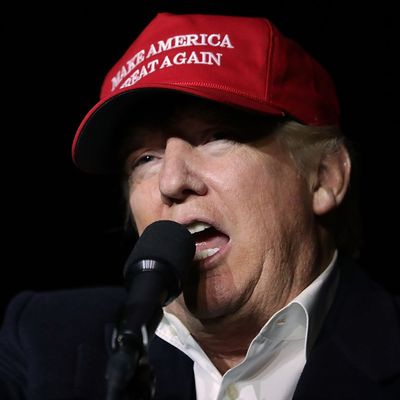
It’s been a bad 20 days for Barack Obama’s legacy. Donald Trump’s election threatens the president’s signature health-care law, financial reforms, Clean Power Plan, and nuclear agreement with Iran, among many other policy achievements. But before this weekend, one Obama legacy item that appeared (relatively) safe was his decision to open up diplomatic relations with Cuba.
That policy had consistently garnered majority support in public-opinion polls. In fact, most Americans think Obama hasn’t gone far enough in normalizing relations with the Communist island — telling pollsters that they’d support an end to the Cuban embargo. Even Cuban-Americans, who have historically been a key constituency for America’s hard-line stance toward the Castro regime, came around to Obama’s way of thinking by the end of 2015.
What’s more, the American people didn’t just approve of Obama’s Cuba policy — they also didn’t care about it that much. Which is to say, the issue quickly became obscure enough for the far right to forget all about it.
And then Fidel Castro died.
Now, conservative commentators are turning their fire on Justin Trudeau’s love of communism; Marco Rubio and Ted Cruz are calling on Trump to get tough on Cuba; and the president-elect has presented Raul Castro with a 140-character ultimatum.
There are a few remarkable aspects to this missive. For one, it appears that American diplomacy will no longer be conducted around negotiating tables but, rather, over Twitter (perhaps, to discuss especially sensitive matters, Raul Castro can slide into Trump’s DMs). For another, there is no single “deal” for Trump to terminate. Obama’s Cuba policy consists of a series of incremental measures that opened up relations between the two nations, including the removal of Cuba from America’s list of states that sponsor terrorism, and the reopening of the U.S. embassy in Havana.
Whatever Trump does or doesn’t mean by his tweet, the fact the soon-to-be leader of the free world is using his Twitter account to question the integrity of American elections and unilaterally declare radical shifts in U.S. foreign policy, is troubling. (There are more dangerous things to normalize than America’s relationship with Cuba.)






























